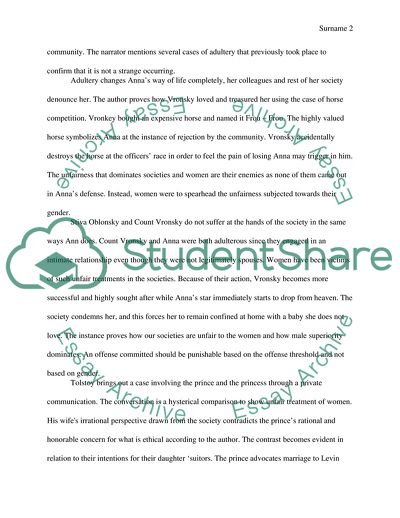Cite this document
(Issues of Gender and Adultery in Anna Karenina Literature review, n.d.)
Issues of Gender and Adultery in Anna Karenina Literature review. https://studentshare.org/sociology/1839402-written-assignment-anna-karenina-gender-and-adultry-in-19th-century-russia
Issues of Gender and Adultery in Anna Karenina Literature review. https://studentshare.org/sociology/1839402-written-assignment-anna-karenina-gender-and-adultry-in-19th-century-russia
(Issues of Gender and Adultery in Anna Karenina Literature Review)
Issues of Gender and Adultery in Anna Karenina Literature Review. https://studentshare.org/sociology/1839402-written-assignment-anna-karenina-gender-and-adultry-in-19th-century-russia.
Issues of Gender and Adultery in Anna Karenina Literature Review. https://studentshare.org/sociology/1839402-written-assignment-anna-karenina-gender-and-adultry-in-19th-century-russia.
“Issues of Gender and Adultery in Anna Karenina Literature Review”. https://studentshare.org/sociology/1839402-written-assignment-anna-karenina-gender-and-adultry-in-19th-century-russia.


